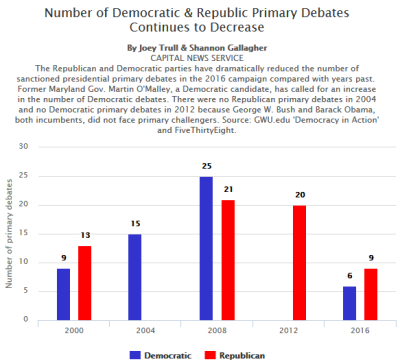
WASHINGTON—For weeks, former-Maryland Gov. Martin O’Malley has been aggressively pressuring the Democratic National Committee to allow more than six presidential primary debates, a move that gained some traction last week when two top party officials publicly criticized the debate schedule.
O’Malley has repeatedly pushed for more debates since the six-debate schedule was announced on Aug. 6, including an impassioned speech he gave at the DNC summer meeting on Aug. 28 in Minneapolis.
On Sunday, O'Malley's campaign manager Dave Hamrick sent a letter to the campaign managers of the four other Democratic candidates asking them to agree to six additional debates: two in Iowa, two in New Hampshire, one in South Carolina and one in Nevada.
"The reasons for this are simple: by limiting the number of debates Democrats hold this year, the DNC is allowing the Republican presidential candidates — namely, Donald Trump — to dominate the national debate, and whoever our nominee is will emerge stronger as the result of a vigorous debate process," Hamrick's letter said.
DNC Vice-Chairs Rep. Tulsi Gabbard of Hawaii and former Minneapolis Mayor R.T. Rybak criticized the debate schedule in a Facebook post last Wednesday, calling it a “mistake,” and proposing several more than the six allotted debates.
“By limiting Democratic debates to just six, more people will feel excluded from our political process, rather than included,” the Facebook post signed by Gabbard and Rybak said.
But DNC chairwoman Rep. Debbie Wasserman Schultz (Fla.) doubled down on her position the next day at a Christian Science Monitor breakfast.
“We’re not changing the process. We’re having six debates,” she said, according to several published reports.
In addition to scheduling six DNC-sanctioned debates, Wasserman Schultz prohibited candidates from participating in non-sanctioned debates, which has been a common practice in recent election cycles. Before the 2008 election, Democratic candidates participated in 25 debates, 13 of which took place before October 2007, the point in the current election cycle when the candidates will have their first debate.
Debates are especially important for O’Malley, who has failed to gain momentum in the polls as Sanders has emerged as the progressive favorite. A CNN poll of likely Iowa-caucus goers released Thursday showed O’Malley at 3 percent, while Sanders and Clinton topped the poll with 41 percent and 40 percent respectively.
Clinton and Sanders have both said they would be willing to participate in more debates, but O’Malley is the only candidate actively pressuring the DNC to expand their debate schedule.
On Wednesday, O’Malley’s campaign will join a protest outside of the DNC headquarters in Washington to increase pressure on party leaders.
The protest is being organized by #AllowDebate (cq) a new advocacy group with no affiliation to a candidate.
Ben Doernberg, founder of #AllowDebate, said it appears to be only Wasserman Schultz defending the six-debate schedule in the face of increased pressure, but he is confident the movement will be successful.
“There’s only so long that she can stand alone against the grassroots of the party and her vice-chairs and party leaders in New Hampshire and Iowa,” Doernberg said. “I think she’s hoping this issue is going to go away, and it’s absolutely not going to go away.”
Several New Hampshire state lawmakers and the head of the state AFL-CIO have called for more debates, and four Iowa county chairpersons and multiple other lawmakers have also opposed the six-debate schedule.
Stella Rouse, Director of the Center for American Politics and Citizenship at the University of Maryland, said debates often have a meaningful impact on primary races and for O’Malley they could be his last “Hail-Mary” to revive his struggling campaign.
“His only opportunity really is to increase the debates and try to make an impact on a highly publicized stage, which he hasn’t really been able to do, and hope that Clinton and Sanders and whoever else will falter and he can capitalize on that,” Rouse said.


